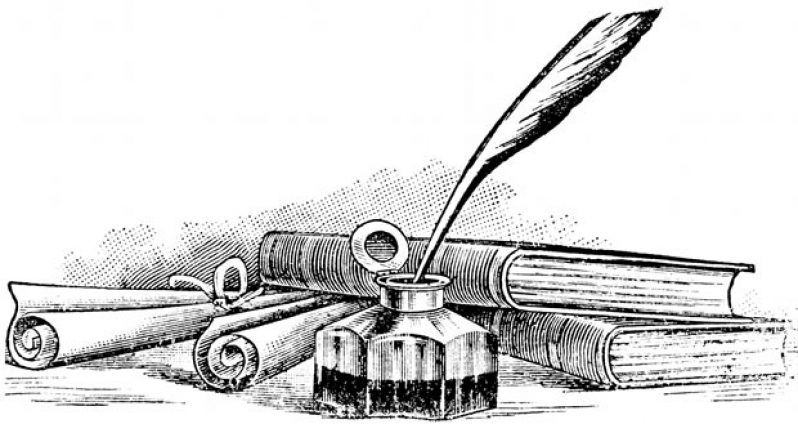The story of Moses and Solomon
–not the biblical prophets, but rather the profit-like figures in Guyana
IN THE 21st Century, 2011 BC, Moses cast himself out of Freedom House and proclaimed to the multitudes, “I have left the house of Cheddi, and so should you.”And, in the midst of the crowd, a wise old man stood up and thus asked, “Is it because they didn’t select you to be a prophet… sorry… a president?” And Moses said unto him, “Shut yuh suh and suh mouth!” He announced that he was never interested in any such position, and to prove it, he will walk in the political wilderness forever.
Two long days went by, and then the people of the AFC offered him the vice-presidential position, and immediately his journey into the political wilderness came to an abrupt end. But in the plebiscite, only 10% of the people supported Moses and his kindred crew.
And it came to pass that the position he so craved in government continued to be elusive. He obsessed as to why the political gods had been so cruel to him; and then he came to the conclusion that someone had cast an evil spell on him.
So, he sought ‘Hendree’s Cure’. But there would be no respite, as ‘Abel’ came forth and accused Moses of confusing his family’s bloodline in his scroll documenting his (Moses) ‘hanta banta wuk’. He was then told by the ‘wuk-man’ that once inaccurate information was provided, ‘de wuk’ can’t be effective.
And Moses trudged off, forever disconsolate. Moses was never the same man again, for the rejection had ‘rattled his soul’; his words and actions became outlandish over time. Once, he stood up in the great Assembly and proclaimed, from the bottom of his heart, that he never supported the former Presidents Amendment Bill, but ‘Anil of Annandale’ stood up and calmly pulled out his scroll which showed that Moses had lied.
And Moses turned to Anil and shouted, while gesticulating with his fingers, “I will cut yuh s…croll,” and, over time, he and his kindred crew ended up cutting more than the scroll.
Satisfied with the chilling power he felt by all this cutting, Moses gradually began equating himself with the ‘God-King, Xerxes’ in the movie, 300. He wanted revenge, but would achieve it while appearing to be munificent. Thus, he targeted Rohee, the veteran ‘Spartan of the PPP’, and with the help of the eunuchs, he delivered a No-confidence Motion without learning of the facts.
He and his ally, ‘Nigel of Amaila’ accused Rohee of orchestrating retaliatory violence in the Land of Linden, and claimed they had a phone record to prove it. They are still to present this evidence, but during this time, they illustrated great maturity in ignoring every Bill Rohee brought forth in parliament, no matter its importance to national safety and security; they cared not that an independent commission cleared Rohee of any wrongdoing, and their very own ballistics expert had disproved their claims. Such was the maturity of Moses and his kindred crew.
In time, the Firearms Amendment Bill, which they refused to support under Rohee, was brought back by Anil in the Assembly, and Moses said unto them (with a straight and uncompromising face) that he was “pleased that Government had put aside its pettiness on the issue.”
During this time, back in the Land of Linden, there was a man by the name of Solomon. Much unlike the Prophet, this Solomon was looking to rebuild after he helped destroy his own town with his call to violence proclamations. He claimed that he was concerned about unemployment, never mind so many businesses were destroyed in the ensuing melee. He claimed that the government was not providing investments and infrastructure in his region, but was annoyed that not enough workers were being hired for a $1B-plus project government was executing in his township.
He accused government of starving Lindeners of resources because they did not vote for the PPP, but forgot to mention the $3B annually, which is provided to subsidise the electricity cost for the people, apart from the hundreds of millions which are invested in projects.
He claimed that there was no money in Linden, and that things were bleak, which justified their opposition to an increase in electricity rates (which would have still seen them paying below that of the average electricity consumer on the coastland), but just recently, he managed to get some limelight again by announcing that in his cash-strapped community, devoid of businesses and employment opportunities, several local businessmen have come together and are “prepared to collectively invest $500M to develop an industrial and commercial complex in Amelia’s Ward.”
Old Kai always knew that the arguments put forward by the opposition to justify their violent protests in Linden will come back to haunt them. The story of Moses and Solomon is but another example of the obstructionist and petty politics which have served to hamper our accelerated development as a people and nation.





.jpg)








